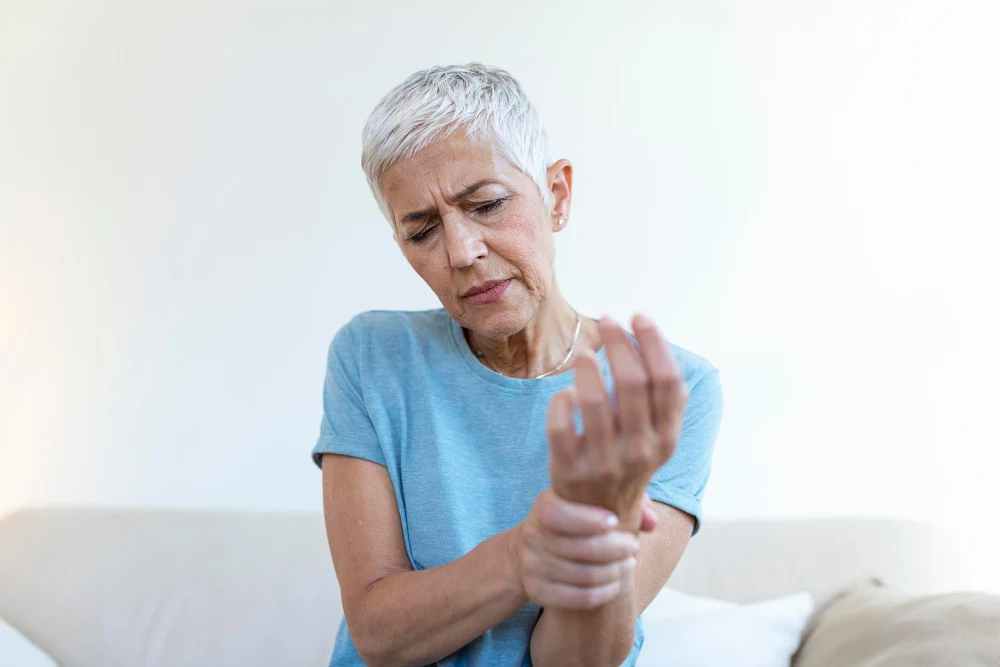What Are the 4 Stages of Rheumatoid Arthritis?
Category: Orthopedics
Rheumatoid arthritis (RA) is a chronic autoimmune disorder that primarily affects the joints, causing inflammation, stiffness, and pain. Unlike temporary joint aches, RA is progressive and can lead to joint damage, deformities, and reduced mobility if not managed early. Understanding the stages of RA is critical for timely intervention and effective management.
At Lokmanya Hospitals, patients receive comprehensive care for RA under the guidance of experienced rheumatoid arthritis specialist doctors in Pune. The hospital offers personalized treatment plans combining advanced diagnostics, medications, physiotherapy, and lifestyle guidance to help patients manage symptoms and maintain mobility at every stage of the disease.
Understanding the 4 Stages of Rheumatoid Arthritis
Rheumatoid arthritis progresses in stages, and recognizing each stage can help patients and doctors plan effective rheumatoid arthritis treatment. The 4 stages are:
1. Early Stage
- In this initial stage, patients may experience mild joint pain, swelling, and stiffness.
- Symptoms are often intermittent, and joints may feel warm or tender.
- Early diagnosis and treatment at this stage are crucial to prevent permanent joint damage.
2. Moderate Stage
- Inflammation increases, and joint pain becomes more persistent.
- Cartilage damage may begin, causing decreased mobility and noticeable discomfort.
- Targeted medications, physiotherapy, and lifestyle modifications play an important role in slowing disease progression.
3. Severe Stage
- Significant joint damage occurs, with cartilage and bone erosion visible on imaging tests.
- Pain, swelling, and stiffness are more pronounced, and daily activities may become challenging.
- Advanced therapies, including biologics or combination DMARDs, are often required to control inflammation.
4. End Stage
- At this stage, joints may experience deformities or fusion, causing severe mobility restrictions.
- Patients often require intensive rehabilitation and long-term management to maintain quality of life.
- Although rheumatoid arthritis cure is not possible, symptom control and functional support are achievable with consistent treatment.
Symptoms Across the Stages
- Early Stage: Mild joint discomfort, occasional stiffness, and fatigue.
- Moderate Stage: Persistent swelling, morning stiffness lasting over 30 minutes, reduced range of motion.
- Severe Stage: Visible joint deformities, increased pain, swelling, and functional limitations.
- End Stage: Loss of joint function, chronic pain, severe deformities, and systemic complications.
Diagnosis and Tests
Accurate rheumatoid arthritis diagnosis at each stage helps tailor treatment. Common diagnostic approaches include:
- Blood Tests: Rheumatoid Factor (RF), Anti-CCP antibodies, ESR, CRP
- Imaging: X-rays, MRI, or ultrasound to evaluate cartilage and bone damage
- Physical Assessment: Joint tenderness, swelling, and range of motion evaluation
Early and precise testing at Lokmanya Hospitals ensures timely intervention and better long-term outcomes.
Treatment Options
Treatment for RA depends on the stage:
- DMARDs and Biologics: Reduce inflammation and slow joint damage.
- NSAIDs and Corticosteroids: Provide temporary pain and swelling relief.
- Physiotherapy: Maintains joint mobility, strengthens muscles, and improves functionality.
- Lifestyle Management: Balanced diet, regular exercise, stress management, and avoiding smoking support treatment outcomes.
Patients at Lokmanya Hospitals receive stage-specific care designed to minimize joint damage and maintain quality of life.
Why Choose Lokmanya Hospitals for Rheumatoid Arthritis Treatment?
Lokmanya Hospitals is one of Pune’s leading centers for rheumatoid arthritis treatment, offering comprehensive care under one roof. The hospital’s team of skilled rheumatoid arthritis specialist doctors provides personalized, stage-specific treatment plans that address both symptoms and disease progression.
With a multidisciplinary approach, advanced diagnostics, cutting-edge therapies, and patient-centered care, Lokmanya Hospitals ensures long-term relief and improved mobility. Patients benefit from expert guidance, physiotherapy, rehabilitation, and lifestyle counseling that empower them to manage RA effectively at any stage.
Conclusion
Rheumatoid arthritis progresses through four stages, each with increasing severity of symptoms and potential joint damage. While a permanent rheumatoid arthritis cure is not yet available, early diagnosis, stage-specific treatment, and lifestyle management can significantly reduce symptoms and improve quality of life.
Lokmanya Hospitals continues to be a trusted destination for RA treatment in Pune, offering advanced therapies, personalized care, and rehabilitation programs to help patients maintain mobility, comfort, and confidence throughout the disease journey.
FAQs
1. What are the 4 stages of rheumatoid arthritis?
The stages are: Early, Moderate, Severe, and End Stage, each representing progression in joint inflammation and damage.
2. Can RA be cured at any stage?
There is no permanent cure, but early treatment can achieve remission and prevent severe joint damage.
3. What symptoms appear in the early stage of RA?
Mild joint pain, occasional stiffness, and fatigue are common early symptoms.
4. How is RA diagnosed at different stages?
Diagnosis includes blood tests (RF, Anti-CCP), imaging (X-ray, MRI), and physical joint assessments.
5. What treatments are available for severe RA?
Advanced therapies like DMARDs, biologics, corticosteroids, physiotherapy, and lifestyle management are used.
6. How can lifestyle changes help RA management?
Balanced diet, regular exercise, stress reduction, and avoiding smoking help reduce inflammation and support treatment.
7. Why is early treatment important?
Early intervention prevents joint damage, improves outcomes, and reduces the risk of severe complications.
8. Can RA affect other organs?
Yes, in advanced stages, RA can impact the heart, lungs, and eyes, making early management essential.
Previous blog

What is Arthritis?
Next blog






